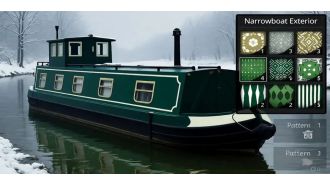The first female Tube driver who opened doors for others.
Despite her influence, women still face underrepresentation in the field.

Hannah Dadds has been recognized as a trailblazer in the transport industry, having paved the way for women in a male-dominated field. Despite starting her career as a stationwoman in 1969, it wasn't until almost a decade later that she made history as the first female Tube driver on the London Underground. Her impact on the industry is undeniable, yet even after 55 years, the number of women in transport roles remains disappointingly low.
Dadds' journey to becoming a driver was a challenging one, as she worked her way up the ranks from stationwoman to ticket collector and guard. It was a role typically reserved for men, as they were seen as physically stronger and better suited for emergencies. But Dadds was determined to break through these barriers, stating that "women have been held back too long." She believed that if women were capable of doing the job, they should not be denied the opportunity.
In 1975, the Sex Discrimination Act was passed, allowing women to take on roles such as driving the Tube. Dadds was quick to seize this opportunity and became the first woman to qualify as a driver in October 1978. Her sister, Edna, also followed in her footsteps, making them the first of many female train operators in the decades to come.
Despite her historic achievement, Dadds' journey was not without challenges. The industry was slow to adapt to having women in traditionally male roles, with depots lacking basic facilities such as toilets and separate showers for women. However, this did not deter Dadds, who continued to excel in her role and eventually retired in 1993.
Her legacy lives on, with a commemorative plaque at Upton Park station in east London serving as a reminder of her groundbreaking contribution to the transport industry. Laura Sleath, a senior curator at London Transport Museum, describes Dadds as a true pioneer who helped change attitudes towards women in the 1970s and opened up opportunities for others to follow in her footsteps.
While progress has been made, the latest figures by Women in Transport show that only 23% of people in the transport sector are women, with most of them in non-transport roles. This highlights the need for continued efforts to increase diversity and representation in the industry.
Hannah Dadds' determination and courage have paved the way for more women to pursue their dreams in the transport industry. Her legacy serves as a reminder that with determination and hard work, anything is possible.










